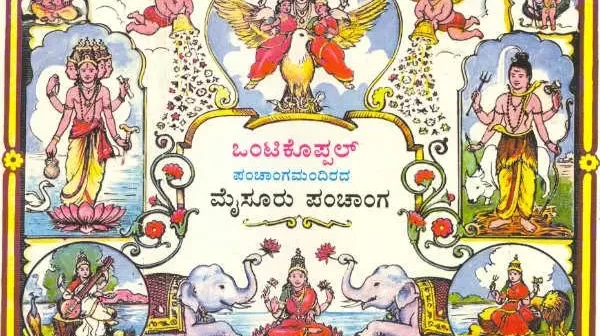The Hindu calendar, a celestial roadmap that transcends time and space, holds profound importance within the Hindu community. Rooted in ancient wisdom and steeped in spiritual significance, this calendar is not merely a tool for tracking days, but a sacred guide to harmonizing one’s life with the rhythms of the cosmos. In this article, we delve into the rich tapestry of the Hindu calendar and its enduring relevance to the Hindu way of life.
A Timeless Tradition:
The Hindu calendar, known as the “Panchanga,” is a composite system that integrates lunar and solar cycles. It is both a lunar and a solar calendar, incorporating the lunar phases and solar movements, providing a comprehensive view of time. This dual nature allows it to serve various purposes, from religious festivals to agricultural planning.
Spiritual Significance:
- Alignment with Cosmic Forces: The Hindu calendar is not a man-made creation; it is believed to be divinely inspired, reflecting the cosmic order. Each day, tithi (lunar day), nakshatra (constellation), yoga, and karana holds spiritual significance, connecting individuals to cosmic energies and divine blessings.
- Festivals and Rituals: The calendar is the cornerstone of Hindu festivals and rituals. It dictates the timing of major celebrations like Diwali, Holi, and Navaratri, ensuring that they occur during auspicious moments when the divine energy is most potent.
- Spiritual Progression: The Hindu calendar encourages spiritual growth and self-realization. Observing fasting days, performing specific rituals, and practicing self-discipline during certain periods align individuals with higher spiritual frequencies.
Cultural and Social Relevance:
The Hindu calendar extends its influence beyond spirituality into daily life:
- Agricultural Calendar: Farmers rely on the Hindu calendar for agricultural planning. It aids in determining the best times for sowing, harvesting, and various farming activities, ensuring a harmonious relationship between humanity and nature.
- Celebrating Diversity: India’s cultural and religious diversity is reflected in its regional calendars. Different regions follow their own variations of the Hindu calendar, which accommodate local traditions and festivals, fostering unity amid diversity.
- Marriage and Auspicious Occasions: Families consult the calendar for selecting auspicious dates for weddings, housewarming ceremonies, and other life events, emphasizing the calendar’s role in ensuring harmony and success in these endeavors.
Preserving Tradition in Modern Times:
In today’s fast-paced world, where digital calendars and schedules dominate, the Hindu calendar continues to hold its significance. Many individuals and communities actively consult it to uphold their spiritual and cultural traditions, forging a connection to their ancestral heritage.
The Hindu calendar, with its spiritual depth and cultural relevance, serves as a timeless guide for millions of Hindus worldwide. It not only nurtures their spiritual growth but also provides a roadmap for harmonious living in accordance with cosmic rhythms. As the Hindu community navigates the complexities of the modern world, the enduring significance of this sacred calendar ensures that its rich traditions and wisdom continue to flourish, bridging the gap between the earthly and the divine.






